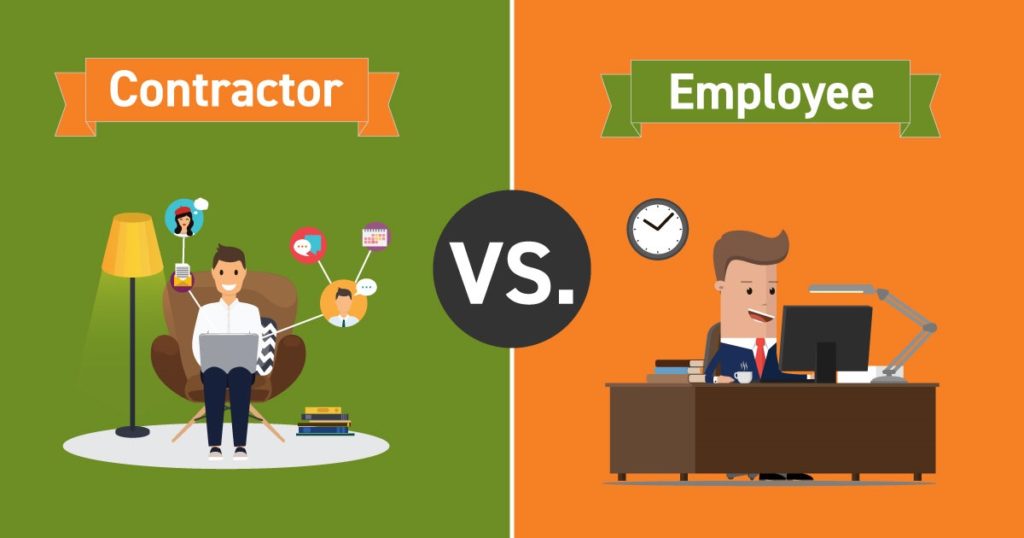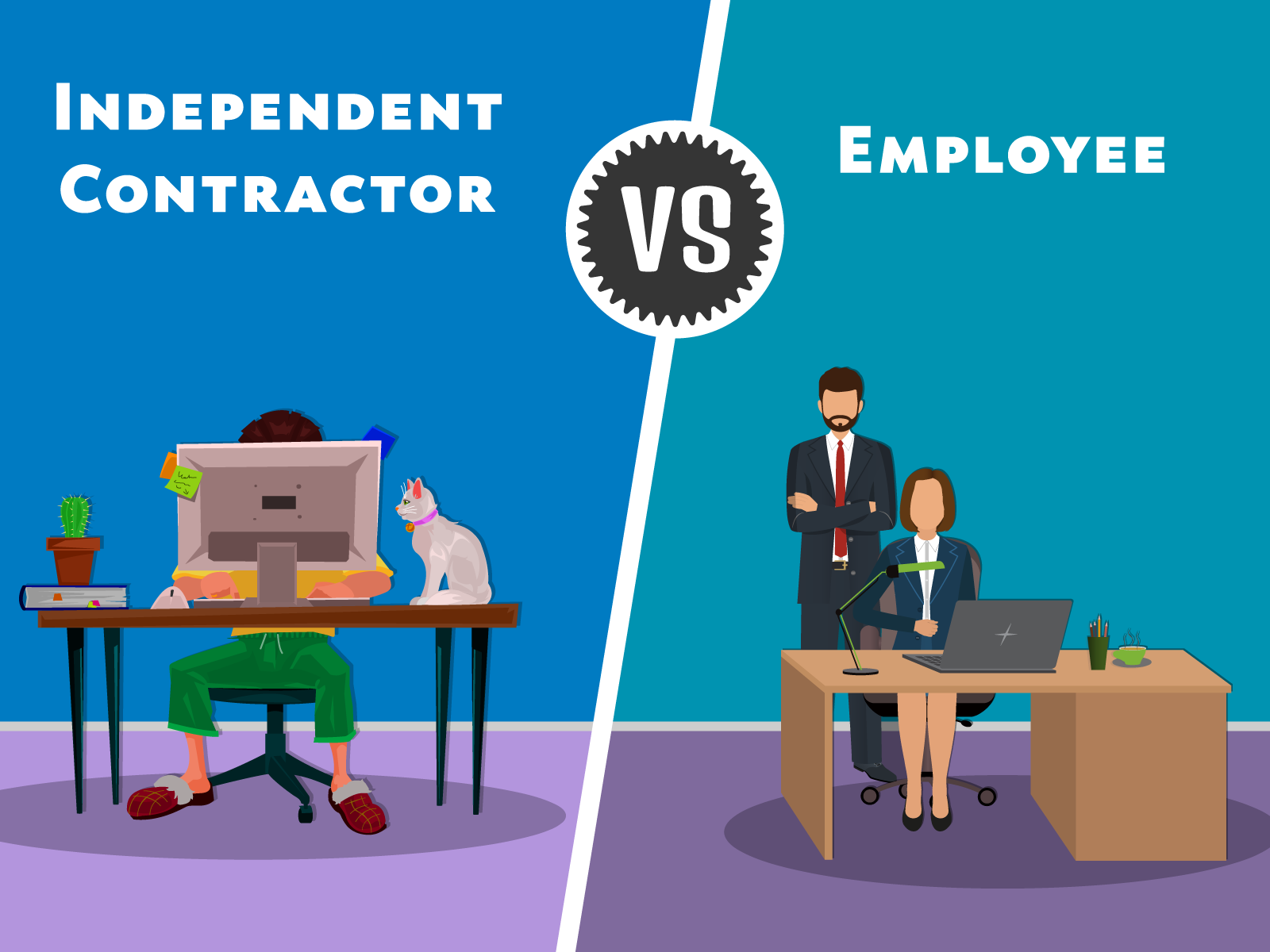One of the biggest and confusing issues new cleaning business owners have is whether to hire independent cleaning contractors or regular employees. Maybe you haven’t encountered this yet because you just started. You will encounter it sooner rather than later.
Some people will just tell you that both have their pros and cons – the end. But that’s a cheap way to end any discussion.
After years of experience and testing what works and what doesn’t, at Maid to Glow we don’t usually prefer hiring regular employees. Instead, we go for independent cleaning contractors.
I’m not saying you should never hire regular employees. I’m just saying independent cleaning contractors are a better choice, and in this article, I’ll explain why.

Short-Term vs Long-Term Goals
Before we start, let’s discuss short-term vs long-term planning and how it affects your decision of whether to hire an independent contractor or regular employee.
Sure, it’s very convenient to have employees working for you, especially when you have a relatively large cleaning business doing financially well.
But does that mean the opposite is true? Does that mean it’s not convenient or not advisable to hire contractors for large cleaning businesses?
Not at all. There are multi-million dollar cleaning businesses that operate solely on contractors. To give you our own example, we at Maid to Glow have around 20-25 cleaners, all independent contractors.
So yes, while aiming to have a stable workforce consisting of regular employees is a great long-term strategy, it doesn’t make it the only great long-term strategy.

Differences Between Independent Cleaning Contractors vs Regular Employees
Schedule
This is how it works on paper – you can dictate the cleaner’s schedule if they are a regular employee, but independent cleaning contractors choose their own schedule.
But in reality, it’s super easy to find contractors that will comply with your preferred working schedule. The key here is your hiring process.
When hiring cleaners for Maid to Glow, we only shortlist applications with the same availability as our preferred working schedule. So, if a cleaner is making it to the interview round, their availability is already in line with our schedule.
Plus, you can always negotiate. For example, if a cleaning contractor says they are available Monday to Wednesday, but you need them on Thursday to Saturday, they can either change their schedule or leave the job. It’s up to them.
Uniform
You can force your employees to wear the uniform but not a cleaning contractor. The best you can do is suggest or request them to do so. Ultimately, it’s their choice if they want to or not.
Cleaning Supplies
Independent cleaning contractors bring their own cleaning supplies, including equipment like vacuum cleaners. On the other hand, you have to provide supplies to your employees.
It’s much more cost-effective and less hectic to manage when the cleaners bring their own supplies.
Plus, cleaners are more likely to look after their products and equipment since they are paying for it. On the other hand, it’s very time-consuming and expensive to maintain, replace and fix equipment for your employees every time.
In Maid to Glow, we provide our cleaners with a “Recommended” cleaning kit that they need to have for a particular job.
It’s not a major problem if they don’t have the exact brand names or models we recommend, but if they lack anything essential for the cleaning job, they won’t get the job.
Transportation
You may have to provide transportation and vehicle arrangements to your employees based on the job agreement.
But that’s not the case with cleaning contractors. They will manage their own transportation, which again is a lot more cost-effective and efficient.
Insurance
Once again, you may have to provide insurance and workman’s compensation to your employees but not the independent contractor.
W2 vs 1099
What is a W2?
It’s the name of the tax form you file when you hire regular employees.
If you hire a W2 employee or regular employee, this is what you’ll be obliged to do –
- Withhold federal and state income tax, social security tax and Medicare tax from employees’ pay.
- Include all of this on the W2 form.
What is a 1099?
It’s the tax form that independent contractors or freelancers use to file their taxes.
Independent cleaning contractors pay and file their own taxes, along with with business expenses.
But keep in mind, as an employer, you still have to report their income to the IRS.

Should you Hire an Independent Cleaning Contractor or Regular Employee?
Independent cleaning contractors afford you more flexibility while regular employees provide more stability.
Independent contractors require fewer legal obligations and management, which, as we discussed, is very cost-effective and efficient, something you need in the beginning stages of your business.
Employees can and will never steal your clients. But does that mean contractors can?
Many people believe that contractors can steal your clients. This is not entirely true. You can prevent this by having proper Non-Solicitation agreements with all your contractors. If they break this agreement, they will face legal consequences.
Another great benefit of hiring independent cleaning contractors is that you don’t have to pass on cleaning jobs that are not in your scope of work.
For example, if you specifically run a house cleaning business and receive a request for an office cleaning job, you can easily hire a contractor to do it. It helps you build long-term credibility and network.
Sometimes, you’ll interview candidates that are not really in it for the long-term. They just wanna get hired, learn the business processes, leave and start their own cleaning business.
What you can do with such people is hire them as contractors. This way, they get what they want, and you’re in a less risky position when they eventually leave. A win-win for both parties.
One last thing I want you to understand is that you don’t necessarily need either one of the two. You can have employees as well as contractors. However, I recommend hiring employees only when you reach an arbitrary number of about 30 techs.
Before that, I’ll always recommend you hire contractors.












[…] we say security, we don’t mean insurance. One of the advantages of hiring contractors instead of employees is that you don’t have to provide insurance and other […]